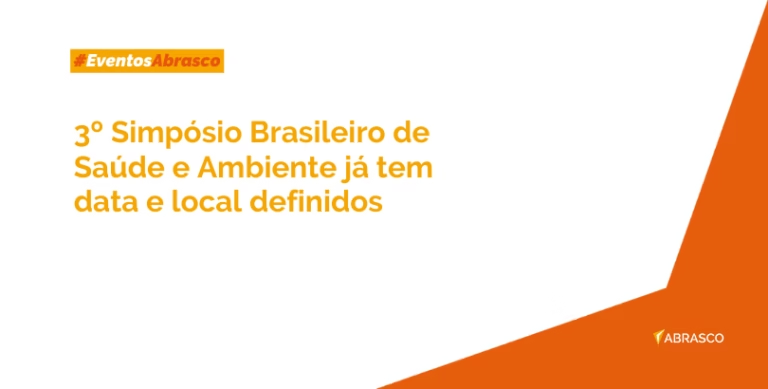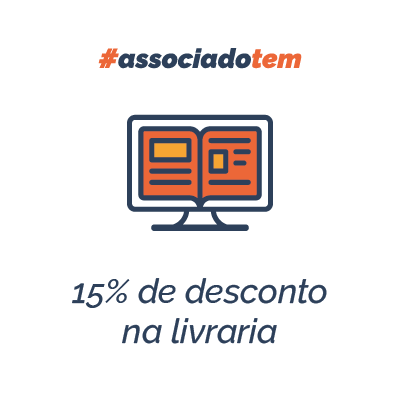Os preparativos para a 27ª Conferência da Sociedade Internacional de Epidemiologia Ambiental estão a todo vapor. O evento é promovido pela Sociedade Internacional de Epidemiologia Ambiental (International Society for Environmental Epidemiology – ISEE) e organizado pela Abrasco e pela Faculdade de Medicina da Universidade de São Paulo (FMUSP).
Os workshops pré-Congresso estão agendados para os dias 29 e 30 de agosto e serão realizados na Faculdade de Medicina da Universidade de São Paulo (próximo ao Centro de Convenções Rebouças onde a ISEE2015 acontecerá). Esses workshops estão abertos a todos interessados mediante inscrição. Além do acesso aos materiais a serem entregues em cada workshop, a inscrição também inclui a alimentação (para os workshops com duração de um dia inteiro).
Organização científica internacional, composta por membros de mais de 60 países e com capítulos e grupos regionais na Europa, Mediterrâneo, Ásia e América Latina, a ISEE promove a conferência científica todos os anos com uma programação que inclui sessões plenárias, simpósios, apresentações orais de trabalhos e sessões de pôsteres. A edição de 2015 contará com a presidência de Nelson Gouveia – vice-presidente da Abrasco.
A programação científica preliminar já está no site e as inscrições estão abertas. As vagas para os workshops pré-congresso estão terminando, garanta a sua! Saiba mais no site oficial da 27ª Conferência.
Confira a descrição resumida de cada um dos workshops:
WS -01 – Sat 29 Aug, 14 -17.30
Writing and Publishing Environmental Epidemiology Research Papers
Jane C. Schroeder, editor of Environmental Health Perspectives
This workshop will discuss the basic elements of a standard results paper, simple approaches to writing clearly and concisely, how to develop and use effective tables and figures, how to identify and work with coauthors, and the importance of English language editing and feedback from mentors and peers. In addition, attenders will have an overview of the publication process, discuss how to identify an appropriate target journal and improve interactions with journal editors and staff, and provide recommendations for responding to reviewers. The last portion of the workshop will focus on ethical issues, including plagiarism, duplicate publication, scientific misconduct, and conflict of interest.
WS -02 – Sat 29 Aug, 14 -17.30
Measuring the Neighborhood Social Environment: Implications for Environmental Epidemiology
Anjum Hajat, Waleska Teixeira Caiaffa, Adriano Akira Ferreira Hino and Maria de Fatima Pina
This workshop will discuss the practical implications of using neighborhood social environment data in epidemiologic studies. The topics that will be addressed are: (1) Defining neighborhoods; (2) Measuring the neighborhood social environment using existing data sources; (3) Measuring the neighborhood social environment using systematic social observation; (4) Understanding the role of the neighborhood social environment to environmental epidemiology studies.
WS -03 – Sat 29 Aug, 14 -17.30
Detecting and Countering Falsely Manufactured Alarm or Doubt
Raymond Neutra, Vilma Sousa Santana and Benedetto Teracini
When legal, regulatory or political decisions partially rely on epidemiological evidentiary claims about the magnitude of an incidence (e.g. the mortality from trauma among civilians during the recent Iraq war) or the magnitude or direction of a causal relationship (e.g the added risk of cholera in Haiti conveyed by using Nepalese soldiers as peace keepers there) a number of factors influence the attitude toward and perception of these epidemiological “facts.” Powerful financial and ideological stakeholders find scientists whose testimony is congenial to their interests or even pay to create such testimony. Often arguments about what is the truth is really about what ought to be done. Once the controversy is in the societal domain, the public has different norms for how the argument should progress than the norms used within the scientific domain. The public will not respond well to being told that the scientists have settled the argument already nor will they accept that their cherished dissident scientists are dismissed or suppressed by the scientific community. Sometimes it helps to shift the argument from the contested facts to what should be done even if one were not certain about the facts. Stakeholders can influence what studies get done, who is selected to do them and where, how and if results are published. If research is done, each stage of the research or the review of a body of research can either be done in a balanced transparent way, free of rhetorical tricks or just the opposite. What can practicing epidemiologists do, alone and together to foster balance and transparency and counter biasing activities? We are presenting a set of instructional materials in a day half day pre-conference workshop which we think could be adopted as part of a course in epidemiology.
WS -04 – Sun 30 Aug, 9 – 12.30 and 13.30 – 17
Using BenMAP-CE to estimate the benefits of reducing air pollution
Neal L. Fann and Jason Sacks
The environmental Benefits Mapping and Analysis Program—Community Edition (BenMAP-CE) is a newly developed PC-based and open-source tool developed by the U.S. EPA to quantify the health impacts and economic value of air quality changes. Originally released in the Fall of 2013, this new version replaces a proprietary version that the Agency and outside stakeholders relied upon for over 10 years to support policy decisions. BenMAP-CE contains a user-modifiable database that comes pre-installed with a full suite of health impact functions, population projections, baseline health, air quality and economic value estimates for the U.S. and China. The program now also incorporates air quality, population and baseline health data from the Global Burden of Disease (GBD) project, enabling analysts to assess the avoided deaths associated with user-specified air quality changes in each of the countries covered by the GBD project.
WS -05 – Sun 30 Aug, 9 – 12.30 and 13.30 – 17
Up and running with R statistical software
Zev Ross
With over 6000 libraries and a rapidly expanding user base R statistical software has become a powerful tool for conducting environmental epidemiology research. Interest in learning R has been strong at ISEE and, as a result, this workshop will be offered at ISEE for the fifth year in a row. The goal of the workshop is to get participants up and running with R, to provide users with enough background to begin manipulating data, preparing graphics and conducting simple statistics. Users will also learn how to install libraries and read and write data in a variety of formats. Data from environmental epidemiology will be used in examples and participants will be expected to use their own laptops. This workshop is designed for beginners and near beginners.
WS -06 – Sun 30 Aug, 9 – 12.30 and 13.30 – 17
Introduction to small area studies: The Small Area Health Statistics Unit and the Rapid Inquiry Facility (RIF 4.0)
Anna Hansell, Rebecca Ghosh, Ioannis Bakolis
Small area studies are able to analyze geographic variation of disease with respect to environmental, demographic, socioeconomic, and other risk factors. These types of studies are able to assess the risk to the health of large populations and therefore rare exposures or rare diseases can be studied. They are quicker and cheaper than some traditional study designs and are useful for informing policy and decision making, as well as for generating hypotheses about disease etiology. Based on lessons learned and examples from the UK Small Area Health Statistics Unit (SAHSU), this one-day workshop will provide an overview of small area studies in environmental epidemiology and the use of the Rapid Inquiry Facility (RIF) in disease mapping for such studies.
Dúvidas devem ser encaminhadas para a secretaria do evento pelo e-mail contact@isee2015.org. Confira abaixo as datas centrais do evento:
• Workshops da Pré-Conferência – sábado e/ou domingo, 29 a 30 de agosto de 2015
• Conferência de Abertura/Boas Vindas – Domingo à noite, 30 de agosto de 2015
• Sessão Plenária de Abertura – Segunda-feira, 31 de agosto de 2015
• Conferência de Encerramento – Quinta feira,03 de setembro de 2015





